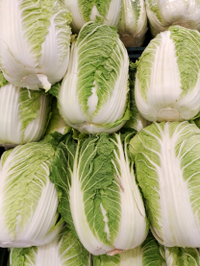
Photo from wikipedia
Clubroot of oilseed rape (OSR), caused by Plasmodiophora brassicae, is a disease of increasing economic importance worldwide. Previous studies indicated that OSR volunteers, Brassica crops, and weeds play a critical… Click to show full abstract
Clubroot of oilseed rape (OSR), caused by Plasmodiophora brassicae, is a disease of increasing economic importance worldwide. Previous studies indicated that OSR volunteers, Brassica crops, and weeds play a critical role in the predisposition of the disease. To determine the effect of timing of foliar application of the herbicide glyphosate or mechanical destruction of OSR volunteers in reduction of clubroot severity and resting spore production, a series of studies were conducted under controlled conditions with a susceptible OSR cultivar and an isolate of P. brassicae. Plants were inoculated by injecting spore suspension beside root hairs at growth stage 11-12 (BBCH-scale) and were terminated at 7 dpi (early) or 21 dpi (late). Under controlled conditions, the first symptoms on roots were observed as early as 7 dpi. The early application of glyphosate as well as early mechanical destruction resulted in significant (p ≤ 0.05) reduction on the development of clubroot symptoms, root fresh weight and the number of resting spores g root−1. Furthermore, the effect of volunteer management on clubroot severity in the succeeding OSR was studied by inoculating plants with the resting spores obtains from treated clubbed roots. Inoculated OSR exhibited root clubs similar to the initial symptoms after 35 dpi. Plants that were inoculated with spore suspension from early treated roots resulted in significant reductions in clubroot incidence and severity. Conversely, plants inoculated with the spore suspension from the late treated roots displayed levels of clubroot similar to the plants inoculated with the spore solutions of positive controls. This article is protected by copyright. All rights reserved.
Journal Title: Plant Pathology
Year Published: 2018
Link to full text (if available)
Share on Social Media: Sign Up to like & get
recommendations!